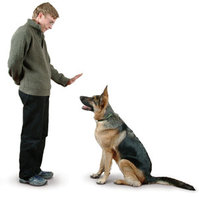Are Dog Attacks on the Increase?
According to some sources, dog attacks are rising at an alarming rate in the UK. Statistics are rising for both dog-to-dog attacks and dog-to-human bites, but should we be worried? Holidays4Dogs finds out.
Over the past few years, dog-related injuries in hospitals have been on the increase. There was a 5% increase in injuries by dogs between 2015 and 2018. The total admissions in this period being over 23,000 patients.
The impact of ‘pandemic puppies’.
Others have suggested that ‘pandemic puppies’ have been the root of even bigger increases in dog attacks in the past 18 months. During the chaos of Covid-19, lock-downs and the resulting stresses and strains for families, it is suggested pet dogs were not exempt from stress either, often resulting in conflict.
The tension created by families having to stay at home impacted on family pets also. It is thought that dogs can sense human anxiety, so it is easy to see why this might contribute to behaviour which may involve increased frustration, stress and even aggression.
Dogs are adept at following our cues and many thrive on routine and structure. When all these things change, dogs can become confused and less secure about their environment.
Since the beginning of the pandemic, the increase of dog bites towards to children has increased and experts propose this is because of increased exposure between children and dogs. Supervision between dogs and children also may have been reduced, as parents concentrated on home-working.
‘Lock-down’ and lack of socialisation.
On top of this many more households acquired dogs during lock-down periods. Dubbed ‘Pandemic Puppies’, these dogs were acquired by people, many of whom were new to dog owning. As training classes and puppy schools closed, many puppies missed out on socialization at crucial periods in their development.
Furthermore, there was little opportunity for dogs to socialize with other households, visit new environments, meet other people, or play with other dogs. This then, may have later influenced their behaviour as an adult dog.
There was in fact a three-fold increase in dog related incidents at the beginning of the first lock-down, which peaked in July 2020 to around 12 hospital attendances per week. The vast majority of cases were due to injuries caused by dog bites.
Lack of training.
The Covid-19 pandemic has highlighted the scale of the problem, as a result of massive demand for puppies during that time. It shows that socialization and habituation is vitally important when it comes to raising puppies. The lock-down situation meant that novice dog owners were less informed and more inclined to over-look the the importance of puppy socialisation.
Dogs provide humans with a great deal of comfort, and during the difficult and very worrying times of the pandemic, people will have turned to their dogs to gain a sense of relief from the seemingly mad world beyond the front door.
Many dogs will have had much more attention from a small family unit. However, once everyone returned to work and school, began travelling around seeing people and having people visit the home – a vast amount of puppies; now un-socialized adolescent dogs – found this difficult to cope with.
Equally, rescue shelters found it hard to cope with the vast in-flux of dogs. This is because families have not been able cope with their dog’s behaviour as life has returned to normal. Many re-homing centres have hit crisis point and are turning dogs away due to lack of kennel space.
Like many other people in various industries, dog trainers were subject to loss of income during lock-down, but are now inundated with owners needing help with their wayward four-legged charges.
Can things get better?
Instances of dog attacks have undoubtedly increased. This includes not just attacks towards people, but other dogs and animals – including livestock and horses. Experts concur that there is a tangible reason for the rise in dog attacks. However, it is thought the trend could be reversed over time. The demand for dogs and puppies has fallen since people have returned to their working lives. Eventually, this should have a knock-on effect at the rescue centre end.
During the peak of the pandemic, the prices of puppies rose to phenomenal levels. However, Holidays4Dogs now notices that prices have dropped considerably on some of the major dog sale websites.
Adverts include puppies older than 8 weeks that remain un-sold, as well as older dogs at little, or no cost. Reduced demand should now limit the breeding of puppies by puppy farmers, or other irresponsible breeders.
Conclusion.
More people now provide dog training services to the general public and the importance of puppy socialization widely highlighted. There has also been a great deal of focus on a seemingly huge excess of un-wanted dogs.
With all of these factors in mind, it is little wonder then, that we are seeing an increase in aggressive behaviour among the pet dog population. In reality, we have only ourselves to blame, since rarely is a dog ever born a ‘bad’ dog.
It is now crucially important that animal professionals, including vets, trainers, behaviourists and animal welfare charities can now increase support to improve the behavioural impact of dogs, particularly in the wake of the Covid-19 pandemic.


